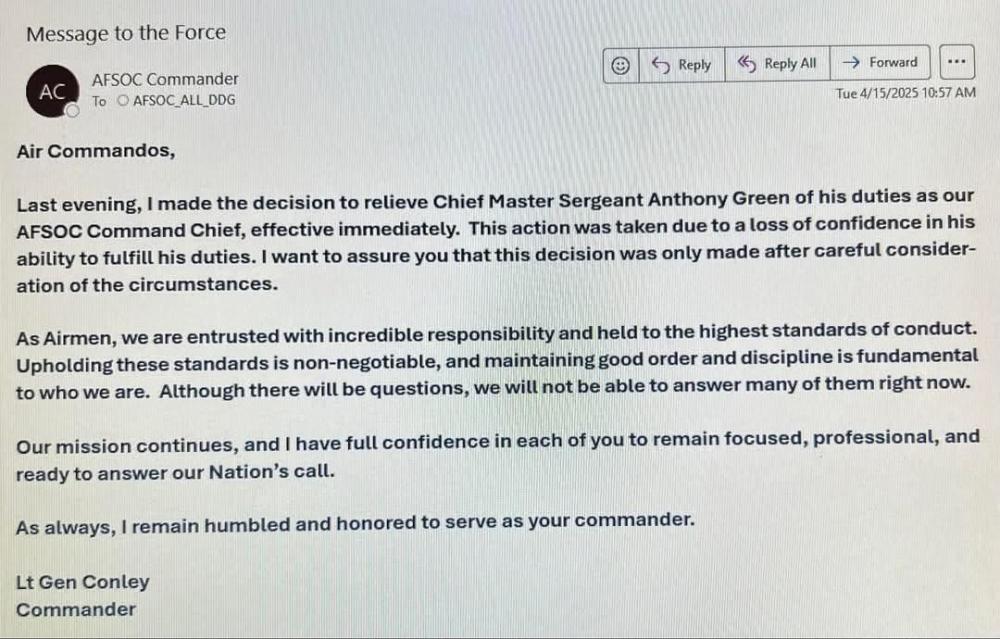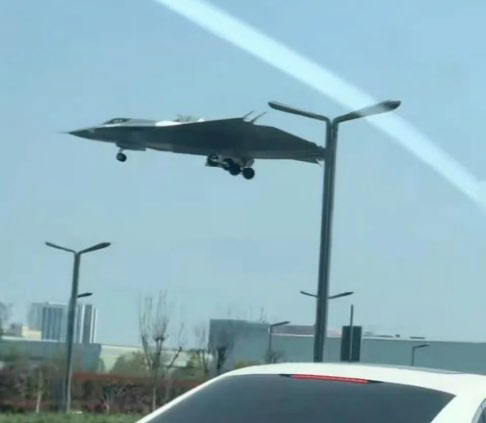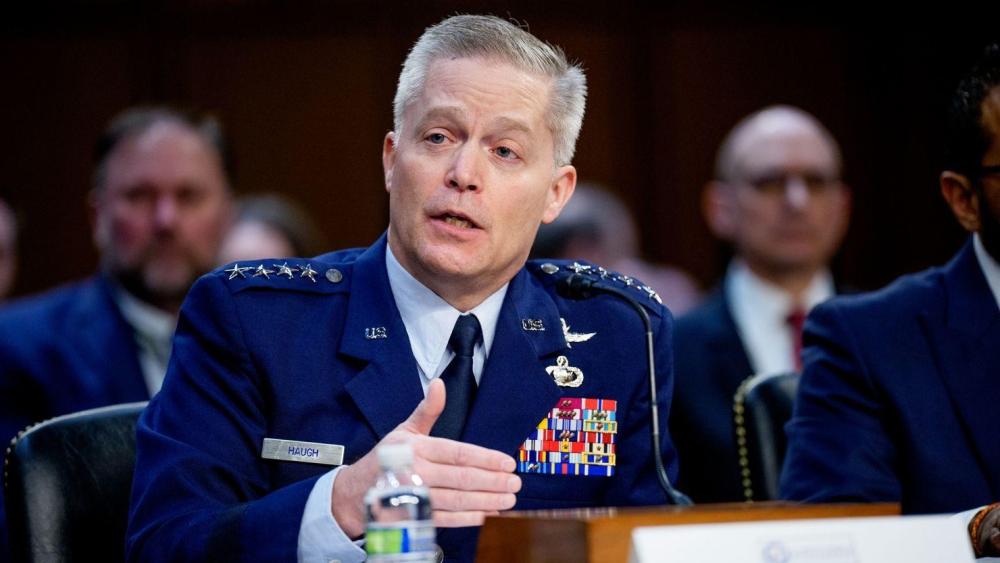-
Posts
5,799 -
Joined
-
Last visited
-
Days Won
151
M2 last won the day on April 9
M2 had the most liked content!
Contact Methods
-
Website URL
https://www.duffelblog.com/
Profile Information
-
Gender
Male
-
Location
Lone Star State
Recent Profile Visitors
The recent visitors block is disabled and is not being shown to other users.
M2's Achievements

Gray Beard (4/4)
3.1k
Reputation
-
We are getting these HAF/A1 updates at work, they are a very entertaining way to start the morning! EO: Prioritizing Military Excellence and Readiness Synopsis: Prohibits expressing a gender identity divergent from an individual’s sex within military service. Prevents the use of invented and identification-based pronoun usage. Prohibit associated medical treatments. Provides that transgender individuals cannot satisfy the rigorous standards necessary for military service. Key Info/Updates: The Acting Assistant Secretary of Defense for Health Affairs released “Additional Guidance on Treatment of Gender Dysphoria” (Atch 2a). Due to the preliminary injunction in Shilling v. United States, Military Treatment Facilities will provide gender dysphoria (GD) care to covered beneficiaries 19 years or older who have been diagnosed with GD. Under the Supplemental Health Care Program, service members can resume GD care, including hormone therapy and pre-surgical evaluations. All previously approved and paused SHCP waivers are reinstated and affected service members should contact their providers to reschedule care. Service members with paused or cancelled pre-approval SHCP requests should resubmit them. The Acting Assistant Secretary of Defense for Health Affairs released “Additional Guidance on Treatment of Gender Dysphoria in Minors” (Atch 2b). The DoD prohibits initiating or continuing puberty blockers or cross-sex hormones for individuals under the age of 19 years old who have been diagnosed with GD. Military medical treatment facility (MTF) providers who are currently treating affected minors must inform patients that puberty blockers must stop immediately, while cross-sex hormones can be stopped immediately or tapered. MTF providers may prescribe reduced hormone dosages to facilitate tapering for up to 6-12 weeks, and extensions will require approval. TRICARE formulary updates are simultaneously underway to revise prior authorization forms for cross-sex hormones to comply with the 13 Mar 2025 memorandum “Treatment of Gender Dysphoria in Minors”.
-
"Political analysis and reporting free of tribal prejudices" 🤣🤣🤣
-
Hell, I thought your post was about the new Kuna from Springfield Armory!! Maybe a Kuna shower gun?!?
-
I'm sure most have seen this already, but it's just too good not to share!! 😁😁😁 QB Nico Iamaleava's time with Tennessee football is over after DEMANDING more money and a 2025 Bugatti Chiron (listed at $4,301,450). Iamaleava, the 5 Star recruiting gem, signed an NIL contract in March 2022 that could’ve paid him more than $8 million by the end of his third year at UT. Iamaleava's ‘Camp’ wanted his NIL pay increased to $4 million per year and a brand new Supercar ‘Bugatti Chiron’ using the possibility of him entering the portal as leverage if his demands were not met. Coach Josh Heupel informed the team that the Vols are moving forward without Iamaleava stating they don’t negotiate with student athletes. #Tennesee #NIL #NicoLamaleava #Vols #SEC
-

Commanders are dropping like flies this year
M2 replied to MDDieselPilot's topic in General Discussion
Great movie! RIP Michelle! -

Commanders are dropping like flies this year
M2 replied to MDDieselPilot's topic in General Discussion
-

Commanders are dropping like flies this year
M2 replied to MDDieselPilot's topic in General Discussion
-
New footage has emerged of the largest of China’s two new tailless stealth fighters, widely referred to as the J-36, although the designation remains unconfirmed. The video in question is perhaps the most impressive view of the aircraft so far and shows the unique three-engine jet on final approach to land at the Chengdu Aircraft Corporation in the province of Sichuan in southwestern China. The J-36 also wears some kind of splinter-type camouflage scheme, with distinct lighter-looking panels around the dorsal intake and aft of it. This is a feature that was visible in previous, much poorer-quality images showing the upper surfaces of the aircraft. Some kind of mirror-like coating, the like of which we have seen on all of America’s stealthy tactical jets for testing purposes, should not be ruled out, either. Meanwhile, lighter-colored areas on portions of the leading edges of the wings indicate the likely presence of apertures for electro-optical/infrared sensors. While this latest video of the J-36 provides us with our best view so far of this still-enigmatic aircraft, the sheer quantity of imagery of the jet that has emerged in the last month or so points to a notable ramping up of test flying activity. https://www.twz.com/air/chinas-j-36-tailless-fighter-zips-over-road-on-landing-giving-us-our-best-look-yet
-
Again, God bless the dirty heathens of the US Army! When it comes to morale, they simply don't give a shit! Army to Recode 20,000 Parachutist Jobs in Major Airborne Restructuring BLUF: In an attempt to "improve readiness," the Army is recoding nearly 20,000 paid parachutist positions that, although remaining as "airborne billets," the affected soldiers will no longer be required to maintain jump status or receive jump pay. Of course, the Air Force is being blamed. "Limited aircraft availability, especially C-17s and C-130s, has contributed to an overall decline in collective airborne proficiency,” according to LTG Gregory Anderson, CG of the 18th Airborne Corps. Per Anderson, “This is not about saving money; it’s about getting readiness to where we need it.” 🤣🤣🤣 Jump pay is $150/mo or $1800 a year; so this "not about saving money" effort is saving the Army $36M a year. To maintain jump status, a soldier must qualify four times a year.
-
Spot on! Why The 2025 NCAA Tournament is the Greatest in Recent Memory
-
-
Call it what you want, but who took the trophy home?!? 🐊🐊 🏆🏆🐊🐊
-
It appears Cavoli wants to be the next four-star fired by Trump!! A non-American as Supreme Allied Commander of NATO? That’d be ‘problematic,’ Cavoli says "It would put us in a position where, in an Article 5 [mutual defense] situation, we could have for the first time since the First World War, large numbers of American troops under non-US command." But it's OK if the other 31 countries are under US command? So the US administration wants less involvement in European problems, but still wants to dictate everything? Check.
-
Trump administration fires director of National Security Agency/Cyber Command The Trump administration has fired the director and deputy director of the National Security Agency, the United States’ powerful cyber intelligence bureau, according to two sources with direct knowledge of the situation, members of the Senate and House intelligence committees and two former officials familiar with the matter. The dismissal of Gen. Timothy Haugh, who also leads US Cyber Command — the military’s offensive and defensive cyber unit — is a major shakeup of the US intelligence community which is navigating significant changes in the first two months of the Trump administration. Wendy Noble, Haugh’s deputy at NSA, was also removed, according to the former officials and lawmakers. The top Democrats on the Senate and House intelligence committee, Sen. Mark Warner and Rep. Jim Himes, denounced the firing of Haugh, who served in the roles since February 2024, in statements on Thursday night... (Full article at title link) I've had a couple of opportunities to meet with Gen Haugh when he was the 16AF/CC. He was an articulate, dedicated and experienced leader in the field of cybersecurity and intelligence, and I cannot fathom how his dismissal will benefit our national security.










